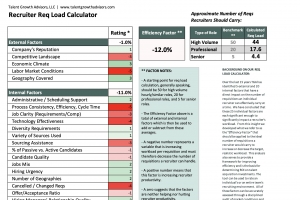Is Performance Management Working? A Report Card on the Report Card

In an unconventional twist, a group of senior HR leaders from top companies assembled to turn the tables and register their own assessments of performance management. A survey was one of several inputs to a daylong think tank in June on the topic: "Fails to Meet Expectations” — Improving the Performance of Performance Management.
While discussing trends and best practices, participants were asked to evaluate performance management by considering the process in general, as well as at their own companies. They were asked to score it in terms of specific objectives and the degree to which they are met.

The report card on performance management drove a spirited discussion.
The group’s verdict on the performance of performance management was “mediocre” at best. Of the 10 objectives rated, nearly half garnered a “Fails to Meet” rating. The tepid scores leveled against performance management across the range of objectives seemed to epitomize a typical measurement shortfall – if there are too may objectives, they all become diluted, and thereby, meaningless. Organizations – and processes - can effectively channel energy into a few goals, but once attention is spread across four, five or six goals, the focus is weakened, and few are truly achieved.
A few findings were paradoxical. Most participants, for instance, reported skepticism about the degree of consistency in the way leaders applied ratings and how accurately performance management processes identified the range of employee performance. Yet at the same time, most believe that it indeed provides defense for legal challenges and that it accurately identifies high potential talent.
Given the skepticism of accuracy and simultaneous trust in legal defense capabilities, one must believe that while performance management has its shortfalls, participants think it’s at least adequate, or they’re resigned to the idea that “it’s the best we have.”
Having said this, the group reported that the most important outcomes of performance management are:
- To raise the performance of employees in the organization.
- To ensure individual employees support the achievement of the organization's annual goals.
- To ensure managers have regular coaching / feedback discussions with their direct reports.
Most respondents feel positive about how Performance Management raises employee performance. However, scores are split about whether those processes achieve another important goal – to ensure managers have regular, meaningful coaching/feedback discussions with their direct reports.
Given its weak overall approval rating, it’s no wonder that trends in performance management indicate companies’ intent to explore wholesale renovation - abolishing performance ratings, doing away with forced curves, and eliminating stacked rankings, for example.
After all, if annual review processes are painful and yield only minimal benefits, why not try something radically different? Data is just beginning to trickle in about how these pioneers and early adopters of change have fared. Some report stellar results – but they don’t come cheaply. The research shows that the level of support and infrastructure needed has not decreased, but in many cases, increased. Some have subsequently reverted to old practices.
Want more insights into the outcomes of our Performance Management Think Tank? Click Here
Contact us; we'd love to talk shop! You may also want to read: Instead of Rating Performance with Numbers, How about Adjectives? and How to Link Compensation to Intellectual Capital.
Share this Article
Learn more about our unique approach to Talent Strategy Formulation.



